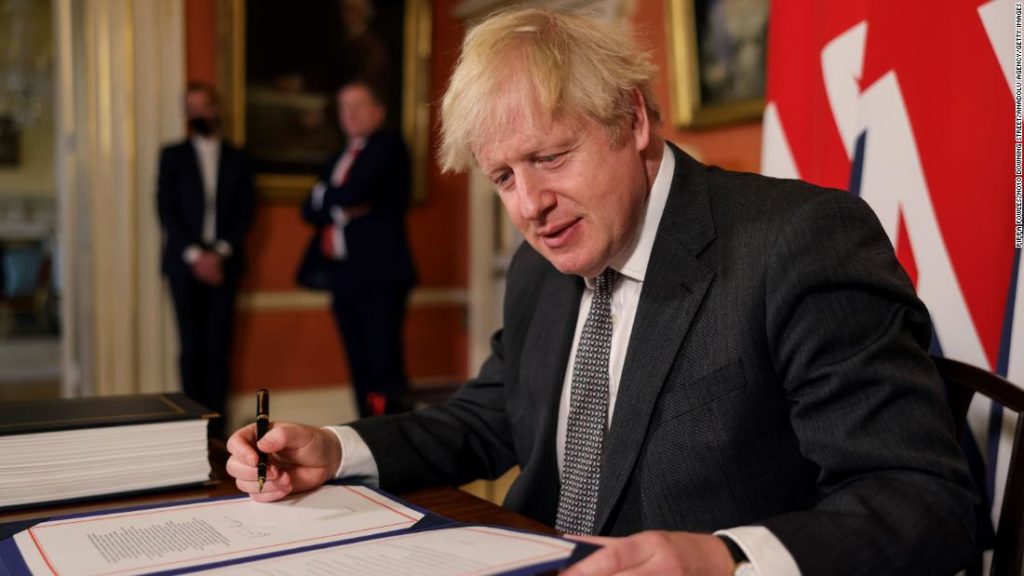The bill passed comfortably, 521 to 73, following accelerated sittings in both Houses of Parliament. The deal, finalized last week, marks a significant milestone more than four years after the UK voted to leave the EU and after months of fraught negotiations.
Opening the debate on Wednesday, Prime Minister Boris Johnson told Members of Parliament that the deal would “open a new chapter in our national story,” and allow the UK to take “control of our laws and our national destiny.”
The bill gained approval in the House of Lords late Wednesday, and was given royal assent early Thursday, becoming law hours before the Brexit transition period ended — a situation that could have been disastrous in the event of no deal — at 11 p.m. on December 31.
The agreement has already received provisional approval from the European Union, with both European Commission President Ursula von der Leyen and European Council President Charles Michel formally signing off on the deal on Wednesday.
The European Parliament is expected to examine the deal at a later date before it can be formally ratified by the European Union.
The deal agreed with Brussels sets out a new business and security relationship with the UK’s biggest trading partner after months of deadlock over areas such as fishing quotas, how the UK would use state aid to support British businesses post-Brexit, and legal oversight of any deal struck.
The agreement, which preserves Britain’s tariff- and quota-free access to the bloc’s consumers, spares the UK some of the most dire potential consequences from Brexit as it battles a crippling pandemic.
The deal also appears to mostly cover trade in goods, where the UK has a deficit with its EU neighbors, but excludes key service industries like finance, where it currently enjoys a surplus.
Opposition leader Keir Starmer, who campaigned against Brexit, said the bill was “thin” and failed to protect trade in the service sector, but that the Labour Party would support it given the devastating alternative: Leaving the transition period without a deal.
The bill — which is 80 pages long, in contrast to the Trade and Cooperation Agreement’s (TCA) more than 1,200 pages — has also been criticized for being rushed through.
“Parliament is considering implementation of the TCA less than 48 hours before it is to be applied — so late as to make ‘no-deal’ the only possible alternative, and to be of extremely limited use to those directly affected by it,” Brigid Fowler, senior researcher at the Hansard Society, wrote.
The vote comes against the backdrop of surging Covid-19 cases in the UK as a more contagious variant of the virus runs rampant through the country.
Hanna Ziady and Julia Horowitz contributed to this story.
You may also like
-
UK coronavirus variant has been reported in 86 countries, WHO says
-
NASA technology can help save whale sharks says Australian marine biologist and ECOCEAN founder, Brad Norman
-
California Twentynine Palms: Explosives are missing from the nation’s largest Marine Corps base and an investigation is underway
-
Trump unhappy with his impeachment attorney’s performance, sources say
-
Lunar New Year 2021: Ushering in the Year of the Ox

